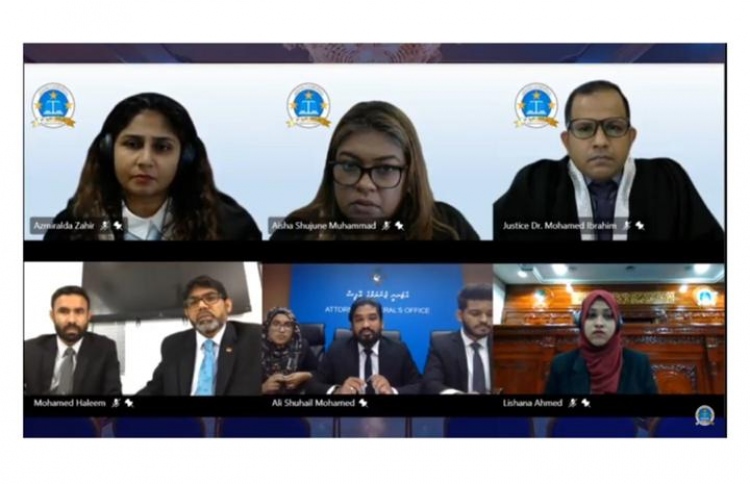Male’, Maldives – The Government of Maldives has said today at Supreme Court that the payment to Dheebaja has not lowered to MVR 174 million through any agreement.
In July, Auditor General Hassan Ziyath refuted an out-of-court settlement with Dheebaja Investment Pvt Ltd, claiming that the contract was terminated after the company breached the agreement, accusing the company of being negligent to its duty to uphold the agreement.
The state contracted Dheebaja to provide ferry services in the Northern Province in 2011, when former President Mohamed Nasheed was in office. However, after President Abdulla Yameen Abdul Gayoom’s administration terminated the contract in 2013, Dheebaja filed a lawsuit demanding the government to pay MVR 348 million to the company as compensation and proceeded to win at the Civil Court. The Supreme Court upheld the verdict this year.
Speaking at the first hearing scheduled at the Supreme Court to review the verdict, the bench questioned both sides thoroughly. State representatives said in court that while the government’s settlement committee agreed for payment, such a decision still needs to be finalized by the president.
State Representatives also pressed on why Dheebaja agreed at the settlement committee to lower the intially claimed payment of MVR 348 Million in damages to MVR 174 Million, even though the supreme court had decided that MVR 348 Million was to be paid.
Dheebaja representative Mohamed Haleem said that the amount was reduced “as a gift for the people” and that a reduction in the amount cannot be used as an excuse to not pay at all.
Haleem asserted that it was not legally permissible to review verdicts after the deadline for submitting appeals had expired and that such cases could only be reopened in circumstances that raise considerable suspicions of injustice or involve systematic procedural issues.
Lawyer Mohamed Faisal added that the government had previously agreed in court that it failed to submit the appeal to the High Court within the allotted time period due to the negligence of the lawyer assigned to the case and inquired the state representatives whether a system to monitor lawyer’s work at the Attorney Generals Office was not in place and if the lawyer in question was not requested to appeal the case.
He also urged the state to provide an adequate reason as to why the Supreme Court was currently reviewing a case for which a verdict was already announced, and that the state attempting an out-of-court settlement with Dheebaja was proof that the Supreme Court’s verdict was accepted by the government.
State representatives claimed the appeal failed to lodged within the allotted time period due to delays in receiving reports from the Civil Court, and defended the High Court’s acceptance of the case in 2018. Noting that the the Judicature Act permitted the acceptance of appeals after the expiry of the allocated period, provided that there was a justifiable reason for delays.
The bench then explained that they can only review a verdict handed out by the supreme court if there is a very clear discrepancy in the case and asked state representatives if such an issue was present in the supreme courts previous ruling.
The state representatives responded that there was no clear indicator of how the damages were calculated by Dheebaja and that the Supreme Court gave their verdict without reviewing many key points, which they believe to be be a huge discrepancy.
Dheebaja representative Haleem refuted these claims, saying the damages were calculated by a well known audit firm after taking into account the time period stated in the contract between Dheebaja and the Maldivian Government.
Wednesday’s hearing was overseen by a judge bench consisting of Judge Aisha Shujune Mohamed, Judge Azmiralda Zahir and Judge Mohamed Ibrahim. The court has said second hearing date would be scheduled shortly.





